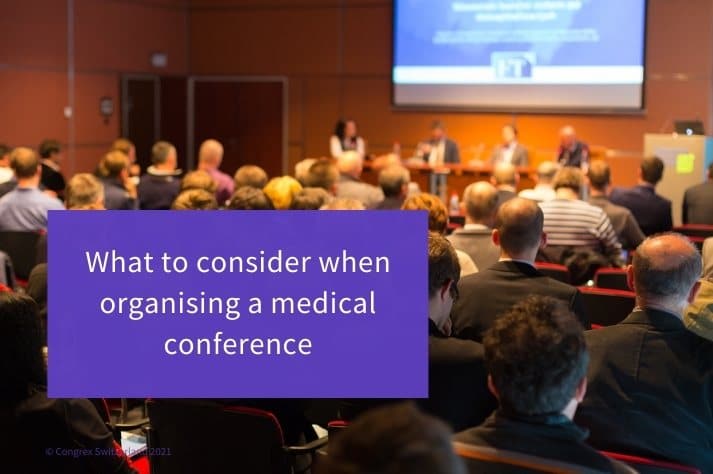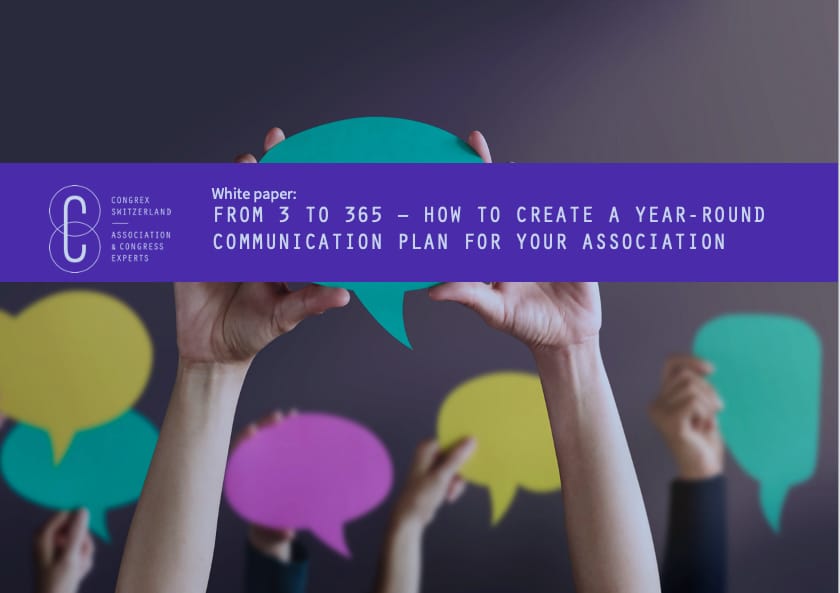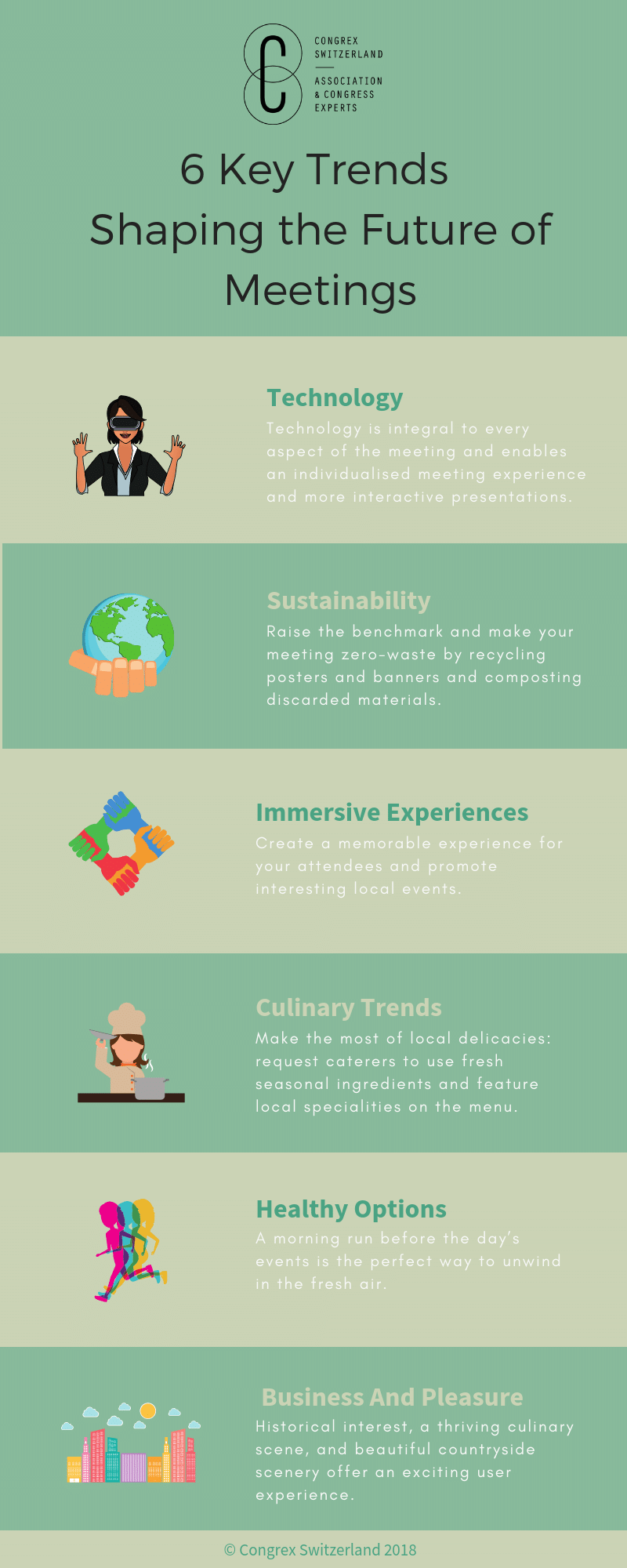Organising a medical conference presents unique challenges that you’re unlikely to face with other conference types.
A medical conference offers a platform for the healthcare community to network and discuss new research findings with other experts in their field. However, audience expectations around academic conferences can put pressure on the hosts.
Planning a medical conference, whether it’s a simple workshop with a small number of delegates, or a multiple-day conference, will involve logistical challenges. The following steps will support you in planning a successful medical conference, while mitigating these challenges.
Focus the conference on science
Medical conferences should always be focused on the science of medicine. With large scale conferences, organisers often lose sight of this leaving the event to become more about networking than learning. The purpose of medical conferences, first and foremost, is to provide interactive learning opportunities, and share cutting-edge discoveries from experts in their field – while the social aspect of the conference is essential, the focus should always be on scientific content itself.
Make sure everyone you invite to speak, and every activity planned as part of your conference schedule remains focused on the science behind healthcare. Offering guidance to invited speakers on material to cover in the talks may help ensure this focus.
Conference schedule
Once you’re clear on the focus of your conference, along with any particular angle you’re going to have (e.g., sustainability, children’s medicine, diabetic medicine, etc.), you need to consider what will be included in your conference schedule.
Conferences are a highly competitive sector, and it can be difficult for healthcare professionals to take time off from their work or research programmes. To make your conference more tempting, you need to prioritise high-quality learning opportunities.
Examples of activities you could include are
- Speaker presentations
- Live demonstrations
- Interactive demonstrations
- Discussion groups
- Breakout Sessions
- Networking
How you structure your conference agenda will depend on your audience. However, we’ve found that a few longer speaker presentations work better than several short speaker presentations as this provides time to cover more ground without rushing!
Your conference schedule should be one of the first things you consider as it can inform other crucial factors like venue and date – rather than having to make your conference fit around these elements. E.g. Do you need multiple rooms to host multiple activities at once? Do you need smaller rooms for group discussions and breakout sessions? Do you plan to have refreshments on-site?
Planning time & support for organising a conference
Medical conferences are not like regular industry meetings that you can put together in a few months. Medical conferences take up to a year of planning, depending on the number of attendees. It would help if you had adequate time to organise the logistics like transport and accommodation of delegates, the conference venue, and sponsorship (alongside calling for papers and securing outstanding speakers).
Healthcare professionals are often requested to organise medical conferences or symposiums. Despite the benefits of engaging with others in their field, organising a large-scale science assembly can be a daunting prospect. It’s always best to get support from a professional conference organiser who can help you navigate the nuances of conference organisation.
Deciding to attend a science conference is rarely going to be a last-minute decision, so give attendees plenty of time by promoting your conference at least six to twelve months ahead. Depending on the topics being covered at your conference, you may want to consider placing ads in relevant publications, promoting your event on websites and leveraging your speakers’ following to get in front of the right audience.
Conference venue and date
Scientists, physicians, and researchers receive many invitations to conferences, so you need to make your event more appealing than the competition. The date and venue for your medical conference also must suit your audience’s needs to buy a ticket to attend.
When planning a medical conference for international delegates providing an easily internationally accessible location is vital. Look for a venue with a range of local transport links and one that has the facilities you need (e.g., multiple rooms of varying sizes or space for refreshments). To help your event stand out a city with cultural and historic interest should be chosen for your venue.
Doing market research into your participants wants and needs is highly recommended when organising a conference. Would your participants prefer the conference be held during the week or on a weekend? Would a full day or half day be more desirable? Especially for those local to the conference. How will these factors affect people’s responses and attendance to the talks or poster presentations? It would be best if you were careful not to plan your medical conference simultaneously as other established scientific conferences or key dates for your target demographic.
While deciding when and where to host your conference, you should consider how much your audience is willing to spend on travel and accommodation costs (if not provided by the event) – choosing a destination that suits your audience’s budget will help to increase attendance.
- Considering a hybrid format where part of the programme can be accessed online also increase attendance and even provide a more sustainable and budget friendly alternative for your audience.
- Considering a hybrid format and online presentation methods for speakers can provide a more sustainable option for your conference over flying in speakers and participants to a physical location.
- Consider additional sessions for patients and other target groups, such as nurses. Special rates for lower income countries can be an additional option.
For support in organising your venue, budgeting for your event, staffing, and promoting your conference, please look at our conference project management services.
Conference finances & sponsorship
Aside from ticketing or registration fees, sponsors are the primary funding option for your conference. When seeking funding from sponsors, ensure your proposal highlights the benefits of sponsoring your event.
Find out more about obtaining sponsorship for your event: Create A Fantastic Sponsorship Proposal With These 5 Tips
Inclusive opportunities
A genuinely successful medical conference will be inclusive, providing senior and junior healthcare professionals an opportunity to share their work and have valuable learning experiences.
The first part of creating an inclusive conference is to have a diverse range of speakers – aim for a balance of genders and include young researchers as well as senior scientists who are leaders in their field.
The second part of creating an inclusive conference is to facilitate attendees from all backgrounds. Those who have been in the medical field for one year should feel as welcome as those who have been in the field for fifty years. Consider including sessions where younger delegates get to have discussions with those more experienced or implement designated seating areas to avoid attendees forming cliques with those they have known for years.
When planning a medical conference, your main goal should always be to create a robust learning and networking experience for your attendees. Without any professional support, you may find it challenging to understand the specific needs of the medical community. Get in touch with Congrex Switzerland, your professional conference organiser (PCO), for hands-on support in organising your medical conference.
——
Congrex Switzerland is an internationally operating agency delivering customised solutions. This encompasses the overall organisation of conferences and meetings, including the management of hotel rooms and strategic consultancy. Annually Congrex Switzerland organises approximately 45 events with over 73’000 delegates. Amongst our clients are international associations, governmental organisations and corporations. Call Us Now








